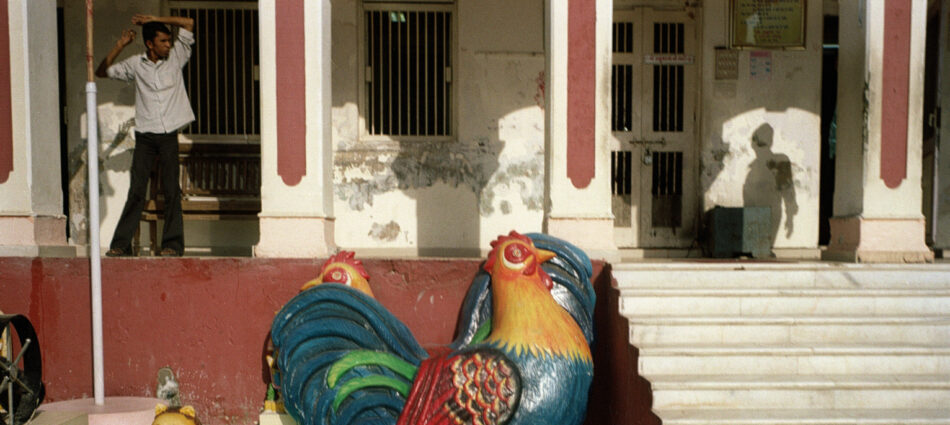
The Idea Of India Project Update: Gujarat’s Faded Testaments, 28th April 2009e
They were the seven minutes that changed India’s future. At 7:43AM on February 27th, 2002, the Sabaramati Express, on its way from the city of Ayodhya, arrived at Godhra railway station. The train was packed with Hindu pilgrims on their way back from Ayodhya. During its standard four-minute stop a series of confrontations broke out between the pilgrims and vendors on the platform. The vendors were largely Muslim. Matters deteriorated quickly, and stones were pelted at the train. As the train tried to pull out of the station, someone from inside the wagons pulled its emergency brakes and bought the train to a stop. After a few minutes the train’s vacuum locks released and it started to move again. And history was written.
The fire that broke out inside cabin S-6 and eventually killed nearly fifty-eight people would become not only the spark that would spread across India, resulting in Hindu-Muslim violence and riots in a number of cities, but also provide the pretext for the orchestrated, coordinated, and state condoned slaughter of nearly 2000 people in the modern, technology park littered city of Ahmedabad. In what would become one of the darkest chapters in modern India’s history, mobs rampaged through the predominantly Muslim areas of Ahmedabad and burnt, stabbed, shot, raped and killed anyone and anything Muslim or associated with Muslims (including Hindus related to them by marriage or business). The police looked on, the state functionaries looked away, and India’s democratically elected leaders offered pliant explanations and bromides. Not since the anti-Sikh riots of 1984 had India seen anything so well planned, so destructive and systemic. Its consequences, its wounds, and tremors continue to affect not just Gujarat, but the country as a whole.
Rakesh Sharma’s documentary Final Solution, which can see by clicking here, tells the story that no nation will want to remember. But it cannot be forgotten.
[googlevideo=http://video.google.com/videoplay?docid=3829364588351777769#]
No revenge. Only Justice. No retaliation. Only reconciliation.
My project now moves to Gujarat. I am there to explore the many instances of shared Hindu-Muslim religious spaces and site. Perhaps now more than ever, these shared spaces can be a lifeline away from those moments of madness, and towards sanity. In a state now infamous for its Hindutva leanings, there remain a number of dargahs and pilgrimages where both Hindus and Muslims find a connection and shared sense of belonging. They hark back to a time when religion was not a divisive factor of identity, towards a time before our histories, our lives, our societies were re-categorized along simplistic and irresponsibly untenable ‘monotheisms’. I will write about the legacy of the likes of Mill and others in later posts. In Gujarat many shared sites have of course been attacked by the fundamentalists, but a few still survive, testaments to a historical heritage now considered unworthy, but that may hold the keys to the future.
I now leave for Gujarat, taking to the road on buses to find these locales, and perhaps in some small way, remind us of how we can still return from this madness, still find a way back to ourselves. To India.
[googlemaps http://maps.google.com/maps/ms?ie=UTF8&hl=en&msa=0&msid=104114207943904934148.000484ff19f02811d7616&ll=22.23826,71.30127&spn=3.558724,4.680176&z=7&output=embed&w=600&h=450]
The project map will be updated as I arrive in various locations and begin to work there. This phase of the project will concentrate on Gujarat’s shared sacred spaces. A subsequent trip later this year will take us into syncretic communities, particularly in the region of Kutch. I will write more about that in future posts.
You can follow the updates here, and also on the Project Progress Page on the project website at The Idea of India
Oh, and the temperature in cities in Gujarat this morning was hovering around 44C, or ~ 108F.
Pingback: love my sister